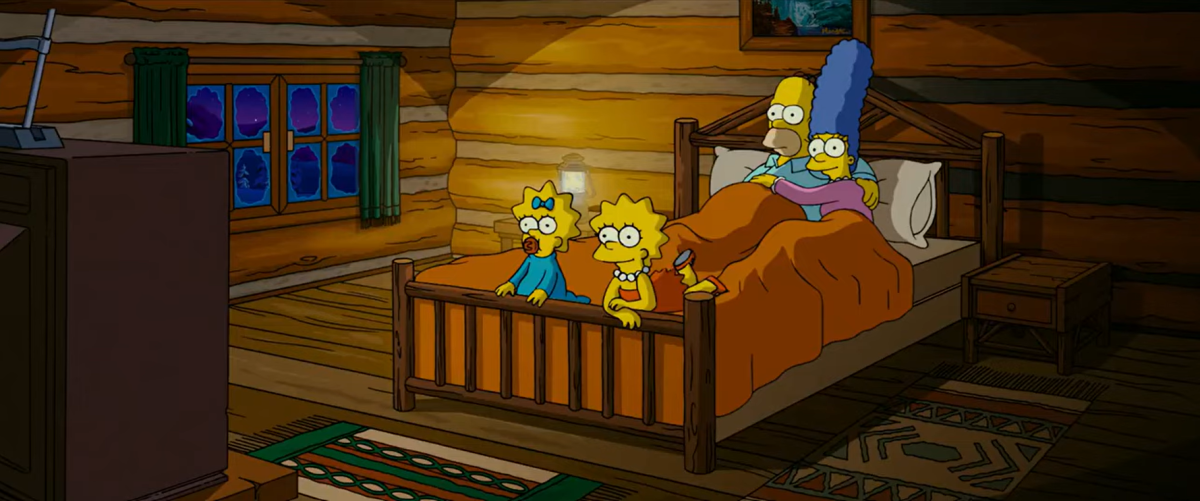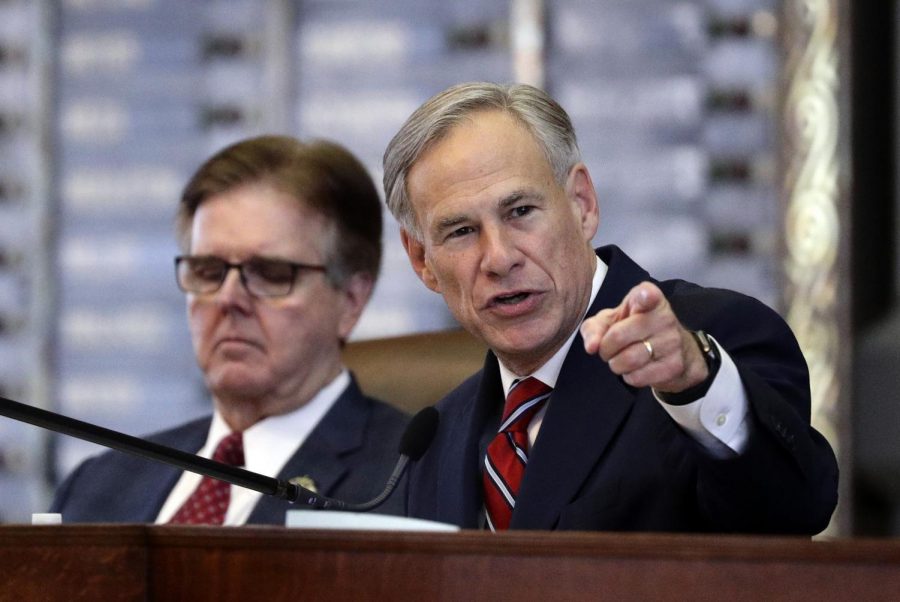Texas House passes pot bill; GOP Senate leader looks to block
FILE – In this Feb. 5, 2019 file photo, Texas Gov. Greg Abbott, right, gives his State of the State address as Lt. Gov. Dan Patrick, left, listens in the House Chamber in Austin, Texas. Texas’ tough stance on marijuana as the drug becomes increasingly legal elsewhere in the U.S. has grounded a bipartisan push in the state to decriminalize minor offenses — a change the Texas GOP platform has come around to endorsing, but not Republican Gov. Greg Abbott.
May 1, 2019
After 45 years decriminalization of small amounts of marijuana took a huge step forward when the Texas House of Representatives voted its approval of House Bill 63 by Speaker Pro Tem Joe Moody (D-78). The measure as passed stops short of legalization and instead reduces the penalty for possession of an ounce or less of marijuana from a Class B misdemeanor to a non-arrestable Class C misdemeanor ticket. Punishment would be limited to a small fine and a short probationary period that would result in no conviction and eligibility for destruction of records in most cases. The bill also removes the mandatory six-month driver’s license suspension that currently accompanies a marijuana conviction (Moody, 2019).
Representative Moody emphasized the benefit to taxpayers, “H.B. 63 has been a five-year-long journey,” said Representative Moody. “It’s one that I began as a prosecutor when I saw firsthand how taxpayer dollars were being wasted on an ineffective enforcement system that ruined lives over such a petty offense. Each year, Texas spends more than 730 million dollars on over 75,000 arrests, almost all of which are for small, personal-use amounts of marijuana”
HB 63 passed the Republican controlled House with strong bi partisan support in a 104 to 43 vote. This is not surprising as the Texas Republican Party has changed it platform on Marijuana Legislation. Last year the Delegates at the Republican Party of Texas convention on Saturday voted to approve platform planks endorsing marijuana decriminalization, medical cannabis and industrial hemp. They are also calling for a change in cannabis’s classification by the federal government.
“We support a change in the law to make it a civil, and not a criminal, offense for legal adults only to possess one ounce or less of marijuana for personal use, punishable by a fine of up to $100, but without jail time,” reads one of the party’s new positions (Angell, 2018).
The House vote is only a first step in the legislative process the measure still must pass the Senate. It is not likely to fare as well in the Senate. With only a few weeks left in this session as a low priority issue it is not expected to make it to the floor for a vote. Senator John Whitmire who heads the Committee on Criminal Justice was quoted as saying “I try not to bring issues that are going to be time-consuming if they are not going to get support. At this stage time is value. I still don’t want to do a shoe-and-tell. I’d like to have a hearing on something that’s got some traction.” Lt. Gov. Dan Patrick, who serves as president of the Texas Senate quashed those hopes of Senate passage when he tweeted that the bills “is dead in the @Texas Senate. I join with those House Republicans who oppose this step toward legalization of marijuana.”
Even if the HB 63 passes the Senate it still needs the governor’s signature to become law. Gov. Greg Abbott does not openly back the bill. However, Moody said his office has worked diligently with him to craft it. Several of the recent amendments were made to accommodate the Governor’s concerns.
So now we wait to see if a few renegade Republican will block the passage of a bi-partisan bill that has the support of their party’s platform and the people of the State of Texas.

























